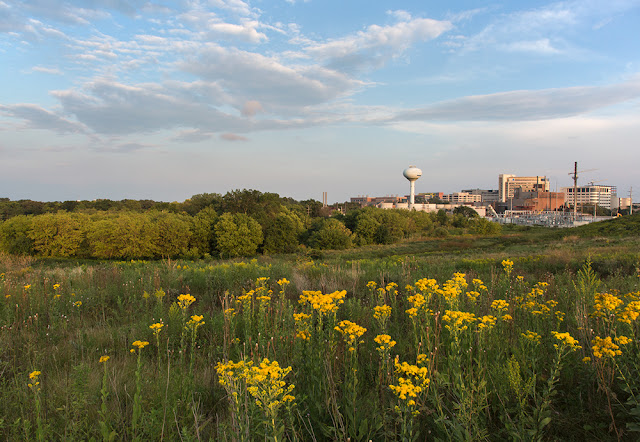The
Cultural Landscape Foundation lists the Wauwatosa property as threatened in its
Landslide program
Sanctuary
Woods in Wauwatosa has attracted a lot of attention over the past year as concerned
citizens reacted to a controversial plan to develop portions of it. As of today,
that attention has gone national for the first time. This morning The Cultural
Landscape Foundation, a prestigious non-profit organization based in Washington
DC, unveiled its annual call to action in support of important places it
considers threatened. Following a rigorous application, jurying and vetting
process, Milwaukee County’s Sanctuary Woods has been included among 13 at-risk
landscapes from all over the country.
The
mission of The Cultural Landscape Foundation (TCLF) is
to connect people to places, to educate
and engage the public “to make our shared landscape heritage more visible,
identify its value, and empower its stewards.” One of the ways the foundation
does this is through a program it calls Landslide:
Open Season on Open Space, which draws attention to threatened places. The
purposes of Landslide are to reveal
the value of identified places, to highlight and monitor at-risk landscapes,
and to save our heritage for future generations. This year Sanctuary Woods shares
the Landslide spotlight with 12 other
new entries that range from a tiny pocket park in Manhattan to the million-acre
Boundary Waters Wilderness Area in Minnesota.
The Landslide designation recognizes that the southeast corner of the
Milwaukee County Grounds, popularly known as Sanctuary Woods, is far more than
a patch of woodland. Preservation advocates and development promoters alike
have largely focused on its wildlife habitat and recreational value. As
important as those things are, they do not tell the whole story. TCLF
defines cultural landscapes as ones “that have been affected, influenced, or
shaped by human involvement.” They can be repositories of cultural narratives
and expressions of regional identity. Not only does Sanctuary Woods have a rich
and compelling history, but fragments of that narrative are still evident in
the landscape.
This story was first published at Milwaukee Magazine. Click here to continue.





No comments:
Post a Comment